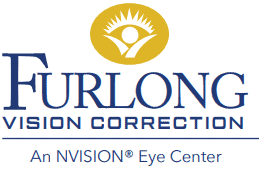Advanced Cataract Surgery & Refractive Lens Exchange
SERVICE DESCRIPTION
Advanced Cataract Surgery
Dr. Furlong has been providing Cataract Surgery since 1994. Since 2013, he has been offering his Cataract patients the option to choose Advanced Lifestyle Lenses and Laser Cataract Surgery.
Laser Cataract Surgery is an exciting advancement that automates certain steps and offers unmatched precision, control and safety. This innovative laser technology allows the surgeon to create completely customizable microsurgical incisions with precision and reproducibility that is not possible with conventional techniques.
The advantages are especially evident when it comes to high-tech, premium implants such as presbyopia-correcting multifocal intraocular lenses (IOLs) and accommodating IOLs. These advantages can include better lens placement and therefore, more accurate visual outcomes.
Elit nisi in eleifend sed nisi. Pulvinar at orci, proin imperdiet commodo


Laser Cataract Surgery
The femtosecond laser first maps your eye to create a customized surgical plan with a sophisticated, three-dimensional image. This image offers high-resolution and even cross-sectional images to make the Cataract Surgery as precise as possible. This is important not only for accuracy but also for increasing the likelihood that the incision will be self-sealing at the end of the procedure, reducing the risk of infection.
This specialized surgery can treat patients with cataracts and astigmatism.
Cataracts
A cataract is formed when the natural lens of the eye hardens and becomes cloudy, resulting in a loss of visual function. Cataracts are a normal part of aging and about 50 percent of all Americans over 65 have cataracts, as do 70 percent of those aged 75 and over. Cataracts can affect all ages, however, they may also result from injury, heredity or certain medications.
A cataract is painless and usually develops gradually over several months or years. The beginning of a cataract in one or both eyes may cause decreased night vision, impaired depth perception and increased color distortion. There is no single, objective test for cataracts. A doctor analyzes patient symptoms, performs a regular eye exam and may test for glare disability and contrast sensitivity to make a diagnosis.
If you have a cataract, it doesn’t necessarily need to be removed immediately. A stronger eyeglass prescription may help improve vision or be treatment enough. Cataract Surgery can almost always be postponed until you are unhappy with the way you see. If you do have surgery, it is performed under local anesthesia on an outpatient basis. The clouded lens is fragmented using a high-frequency ultrasound probe and then removed. An artificial lens is then implanted to take the place of the lens that was removed and the whole procedure takes about 20 minutes. Since the incision is self-sealing, the surgery is usually completed without stitches. It takes a few weeks for the eye to heal completely, but the patient is able to return to normal activity soon after surgery.
This specialized surgery can treat patients with cataracts and astigmatism.
Refractive Lens Exchange
Some patients choose Advanced Lifestyle Lenses before they develop cataracts. This allows them to reduce or eliminate the need for glasses now and also eliminates the need for Cataract Surgery at a later date. It is usually recommended as an alternative to LASIK for people over the age of 50 who are nearsighted or farsighted. Patients who have never worn glasses and now use reading glasses are also good candidates for this procedure. This surgery is known by several different names including Refractive Lens Exchange (RLE), Intraocular Lens (IOL) Surgery, Clear Lens Extraction, Refractive Lensectomy and Presbyopic Lens Exchange.
* An independent Cataract Surgery with Advanced Lenses study found 80% of patients who received the AcroSof ReSTOR intraocular lens never had to wear glasses.
Advanced Lifestyle Lenses
Advanced Lifestyle Lenses are an exciting, revolutionary option for anyone needing Cataract Surgery. Cataract Surgery removes the eye’s natural lens and replaces it with an artificial lens implant. Unlike monofocal lenses, which only focus at a single distance, Advanced Lifestyle Lenses improve vision at all distances and 80 percent of patients choosing Advanced Lifestyle Lenses won’t need to wear glasses at all after surgery.* It’s a great choice that lasts a lifetime! This procedure can also treat astigmatism.
Cataract Surgery is a medical procedure covered by your insurance and Medicare. Choosing Laser Cataract Surgery or Advanced Lifestyle Lenses is an elective upgrade to your Cataract Surgery. Medicare or your insurance will pay for the Cataract Surgery and you will be responsible for the cost of the upgrade.


Monofocal Lens
Traditionally, lenses used in Cataract Surgery have been monofocal, allowing the user to see well at a single distance. Patients with monofocal lenses usually choose to have their natural lenses replaced with lenses that allow them great distance vision. These patients will wear reading glasses for up close and intermediate tasks. Advanced Lifestyle Lenses have now been available for almost 10 years and can be used in lieu of monofocal lenses. They offer better results by improving vision at all distances and eliminating the need for glasses for over 80 percent of daily activities *.
Cataract Surgery has an overall success rate of 98 percent. It provides improved quality of life for millions of Americans each year by increasing independence through improved vision.
Cataract Surgery is a medical procedure covered by your insurance and Medicare. Choosing Laser Cataract Surgery or Advanced Lifestyle Lenses is an elective upgrade to your Cataract Surgery. Medicare or your insurance will pay for the Cataract Surgery and you will be responsible for the cost of the upgrade.
GET IN TOUCH WITH
FURLONG VISION CORRECTION
Contact Us
Please fill out the form below and someone from our office will be in touch with you.





